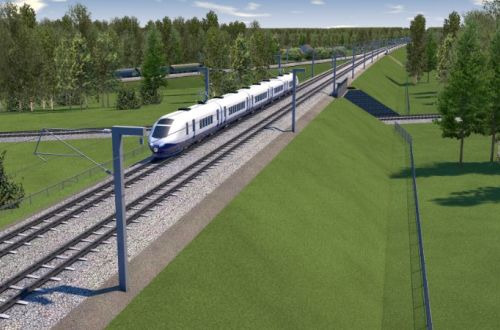Rubesa focused her presentation on the European value of the project, its social benefits and the wider socio-economic impact on the three Baltic States of Estonia, Latvia and Lithuania. She also highlighted some lessons learned from cross-border project implementation.
“Due to the scope of Rail Baltica, its unique cross-border experience and socio-economic impact, this project is emblematic of the type of cross-border infrastructure projects that the European Commission (EC) promotes,” Rubesa said later. “It is an interesting example to share with the transport ministers of the most advanced economies in the world. The Baltic nations should be proud that we are creating unique knowhow to be shared with others in the EU and even globally.”
The G7 transport ministers meeting was dedicated to two main topics: the social impact of infrastructure and advanced technologies for cars and roads. The event was attended by the transport ministers of Britain, Canada, France, Germany, Italy, Japan, and the United States, as well as the European Commissioner for Transport, Ms Violeta Bulc, who had invited Rubesa to take part in a session devoted to best practices and models of sustainable infrastructure.

